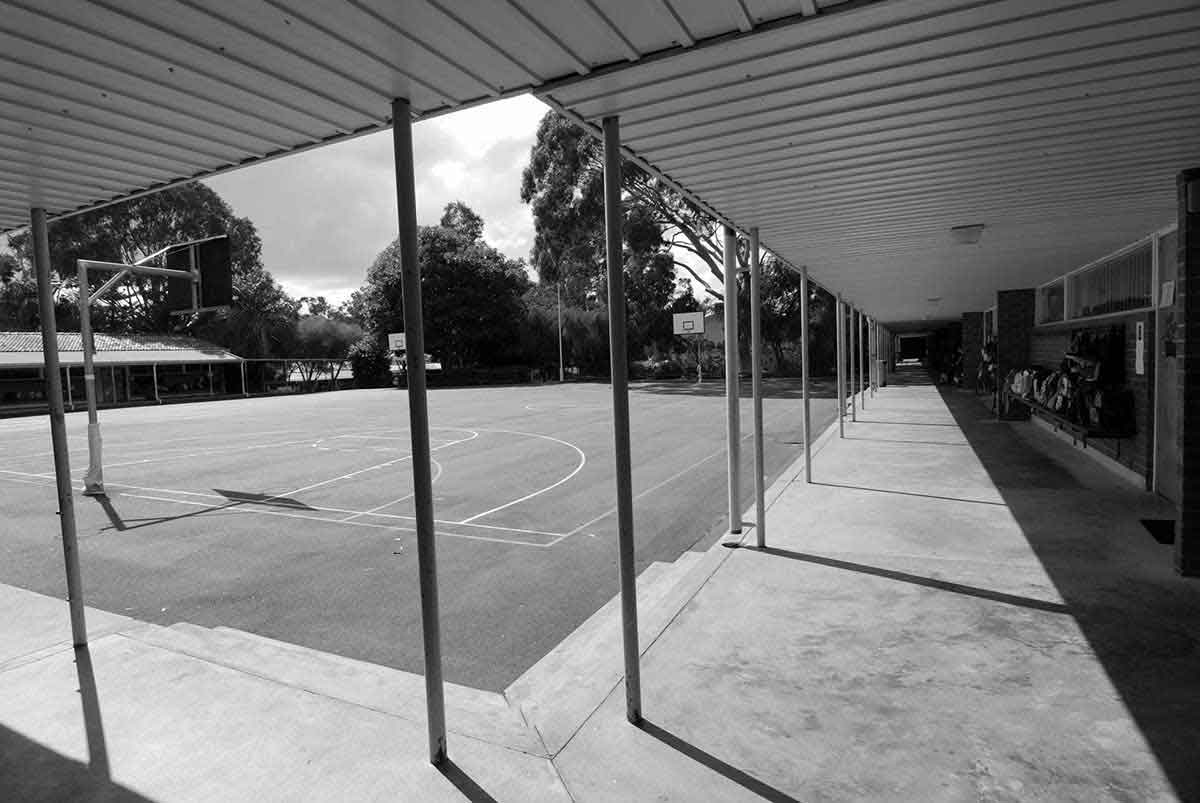Family and Divorce Lawyers in Sydney
Assisting clients with their family law matters since 1973, our family and divorce lawyers are well regarded in the Sydney community for striving to resolve family law matters as efficiently as possible, so that our clients can move on with their lives.
Call 02 9232 8033 to speak with a Divorce Lawyer about your matter
Areas of family law

Divorce
The purpose of obtaining a divorce order from the Family Court is to annul the marriage. It has little bearing on arrangements for children or property, other than to allow a party to re-marry.

Child Custody
A complex and sensitive area. Who has parental responsibility? How much time do the children spend with each parent? Our family lawyers understand the importance of getting it right.

Property
With Sydney property prices the way they are, real estate is usually the most significant asset of a relationship. There is a 4 step process to apply in determining the entitlements of each party to matrimonial assets following a divorce.

De Facto Relationships
An unmarried couple who have been in a relationship for over 2 years, or have children from the relationship, are the same as a married couple.

Binding Financial Agreements
It is possible to enter into agreements in relation to property matters before a relationship commences, or if a relationship ceases. This includes marriage, as well as de-factos.

Child Support
Child support is a payment made by one parent to the other parent, to help with the cost associated with caring for the parties’ children.

Spousal Maintenance
In cases where there is a significant discrepancy between parties’ respective earning capacity, a court may order payment of Spousal Maintenance.

Adoption
There is a process for adopting a child. The Family Law Act 1975 also contains sections dealing with parental responsibility for adopted children.

Domestic Violence AVOs
Domestic violence generally occurs when a family member is violent and/or abusive towards another member of the family.

Superannuation
Superannuation is always considered to be a part of the matrimonial asset pool. In many cases parties will have different super balances.
More information about ‘Family Law & Divorce’
Divorce
To obtain a divorce, the Court must be satisfied that the parties have been separated for a period of at least twelve (12) months, the marriage has broken down irretrievable (that is, there is no possibility that the parties will get back together) and appropriate arrangements have been made for the care of the children (if any).
It is possible for a couple to be separated, but still living together in the same home (and in some cases, sleeping together in the same bedroom).
For marriages of less than two (2) years, the Court will not grant a divorce unless the couple attends some form of counselling.
Our divorce lawyers can assist you with a divorce application. From 1 January 2016 the filing fee for an application for divorce in Sydney alone is $1,195. Contact us for a fixed fee quote to complete an application on your behalf.
Child Custody
At law, both parents have parental responsibility of their child until the child reaches 18 years of age. This means that both parents can jointly and separately make decisions about the child’s upbringing, including the child’s education, healthcare and religion, among other things. This does not usually change simply because the child’s parents separate or divorce.
That said, when a relationship breaks down, certain decisions must be made in relation who the child will live with, when and how much time the child will spend with the other parent, and how important decisions regarding the child will be made now that the parties have separated.
In some cases, parents are able to reach an agreement as to how much time the child will spend with each parent and how decisions regarding the child will be made. If the parties reach an agreement, a parenting plan should be prepared or consent orders filed in court.
Our family lawyers always recommend the parties find an amicable solution when it comes to the care of children. However, we understand that it is not always possible to reach an agreement with your partner regarding the parenting arrangement for your child. In the absence of an agreement, an application can be made to the Court to determine the parenting arrangements. However, before the Court makes an order, the parents must participate in compulsory dispute resolution with an accredited family dispute resolution practitioner and obtain a “section 60I certificate”.
If the parties still cannot reach an agreement, the Court will proceed to make a parenting order based on the child’s best interest. In doing so, the Court will consider the need to protect the child from harm and violence, the child’s right to be cared for by both parents and the child’s right to spend time and communicate with both parents.
Some of the matters the Court may make orders about are:
- how the child is to spend time with each of the parents;
- whether one or both parents are to be responsible for decisions regarding long term issues concerning the child;
- where the child is to go to school;
- whether a child can travel interstate or overseas; or
- whether to grant relocation for the child.
Any other party that has an interest in the welfare of the child, such as the child’s grandparents, can also apply for a parenting order.
Family Law Property Settlement
When a couple separates, one of the main issues that arises is how they are going to divide their assets. All of the parties’ assets must be taken into account, including real estate, bank accounts, cars and furniture, as well as any money held in trust accounts, shares and each of the parties’ superannuation. Liabilities must also be considered, such as the couple’s home and personal loans, and any credit card debt.
Some couples are able to agree how their assets should be separated, without the involvement of the Court. For these couples, a binding financial agreement should be drafted to formalise the agreement reached. Alternatively, the couple can file an “application for consent orders” in the Family Court of Australia. If no formal arrangement is made, both of the parties will be vulnerable to the other party changing their mind down the track and pursuing the other party for more of the asset pool, provided this is done within 2 years of a divorce order being made.
Unfortunately, many couples find it difficult to agree how their assets should be divided post separation. In these circumstances, one of the parties must make an application to the Court for property and financial orders.
The Family Courts apply a four step process to determine parties’ property rights:
- Identify and value the pool of assets.
- Determine the parties’ financial and non-financial contributions.
- Consider “future needs” factors, such as the earning capacity of both parties, or requirements for care of children.
- Consider what is a just and equitable result in the circumstances.
Our family lawyers are experienced in applying these family law principles to cases to work out the entitlements of the parties.
De facto relationships
A de facto relationship exists when an adult couple, who are of the same or opposite sex, live together on a genuine domestic basis. A relationship is not a de facto relationship if the couple are legally married or related by family.
Many individuals in a de facto relationship are not aware of their legal rights. For example, since the laws were amended in 2009, individuals in a de facto relationship can now pursue property and financial settlements in the same way that married couples that separate or divorce can (in the Family Court of Australia). However, the Court can only make orders in relation to de facto couples if it is satisfied that one of the following exist:
- The couple lived together on a genuine domestic basis for a period (or cumulative period) of at least two (2) years; or
- There is a child of the de facto relationship; or
- One of the parties made significant financial or non-financial contributions to the couple’s property or as a homemaker or parent, and a serious injustice to that party would result if an order was not made; or
- The relationship has been registered in the relevant State of Territory.
Importantly, any application for property and financial orders must be lodged within two (2) years of the breakdown of the relationship.
Binding Financial Agreements
A “pre-nuptial” or “post-nuptial” agreements (known as a Binding Financial Agreement (“BFA”)) is an agreement between de facto, soon to be married or already married couples, either before, during or after the breakdown of the relationship. A BFA identifies the couple’s assets as they currently exist and how those assets will be divided if the parties separate.
Often, couples choose to enter into a BFA after their relationship breaks down because it means that they can avoid going to Court. Instead of having a Judge determine how the parties’ assets are separated, the parties can enter into a BFA to determine how their assets are to be divided. This is beneficial because the parties can avoid the inevitable stress and costs associated with litigation.
For a BFA to be legally binding, the each of the parties must provide full disclosure regarding their assets, liabilities and resources, and each party must receive independent legal advice.
It is extremely important that a BFA is drafted by an experience family lawyer otherwise it is likely to be overturned un the event one party changes their mind.
Child Support
People decide to adopt for various reasons; some individuals are not able to conceive naturally, others are in a same-sex relationship and sometimes a step-parent wants to adopt a child from their partner’s previous relationship.
The adoption process is complex because it involves permanently severing the child’s legal ties to their biological family and instead giving full parental rights and responsibilities to the adoptive parents. These responsibilities include looking out for the child’s safety and wellbeing, and providing the child with shelter, food, education and healthcare.
The Child Support Agency has a child support estimator which can give an estimate of child support payable.
Spousal Maintenance
The Family Law Act gives the Courts power to award spousal maintenance in certain circumstances. This means one spouse will have to make periodic payments to the other, for as long as necessary.
When considering making an order for spousal maintenance, the Court shall consider the following factors (not an exhaustive list):
- Age and state of health of each of the parties.
- Income, property and financial resources of each of the parties and the physical and mental capacity of each of them for appropriate gainful employment.
- Whether either party has the care or control of a child of the marriage who has not attained the age of 18 years.
- Commitments of each of the parties that are necessary to enable the party to support himself or herself and a child or another person that the party has a duty to maintain.
- Responsibilities of either party to support any other person.
- Eligibility of either party for a pension, allowance or benefit and the rate of any such pension, allowance or benefit being paid to either party.
- Where the parties have separated or divorced, a standard of living that in all the circumstances is reasonable.
- Extent to which the payment of maintenance to the party whose maintenance is under consideration would increase the earning capacity of that party by enabling that party to undertake a course of education or training or to establish himself or herself in a business or otherwise to obtain an adequate income.
- Duration of the marriage and the extent to which it has affected the earning capacity of the party whose maintenance is under consideration.
- If either party is cohabiting with another person–the financial circumstances relating to the cohabitation.
- Any child support under the Child Support (Assessment) Act 1989 that a party to the marriage has provided, is to provide, or might be liable to provide in the future, for a child of the marriage.
- Any fact or circumstance which, in the opinion of the court, the justice of the case requires to be taken into account.
- The terms of any financial agreement or superannuation agreement that is binding on the parties to the marriage.
Adoption
People decide to adopt for various reasons; some individuals are not able to conceive naturally, others are in a same-sex relationship and sometimes a step-parent wants to adopt a child from their partner’s previous relationship.
The adoption process is complex because it involves permanently severing the child’s legal ties to their biological family and instead giving full parental rights and responsibilities to the adoptive parents. These responsibilities include looking out for the child’s safety and wellbeing, and providing the child with shelter, food, education and healthcare.
Domestic Violence & AVOs
People decide to adopt for various reasons; some individuals are not able to conceive naturally, others are in a same-sex relationship and sometimes a step-parent wants to adopt a child from their partner’s previous relationship.
The adoption process is complex because it involves permanently severing the child’s legal ties to their biological family and instead giving full parental rights and responsibilities to the adoptive parents. These responsibilities include looking out for the child’s safety and wellbeing, and providing the child with shelter, food, education and healthcare.
IVF & Surrogacy
People decide to adopt for various reasons; some individuals are not able to conceive naturally, others are in a same-sex relationship and sometimes a step-parent wants to adopt a child from their partner’s previous relationship.
The adoption process is complex because it involves permanently severing the child’s legal ties to their biological family and instead giving full parental rights and responsibilities to the adoptive parents. These responsibilities include looking out for the child’s safety and wellbeing, and providing the child with shelter, food, education and healthcare.
Superannuation
People decide to adopt for various reasons; some individuals are not able to conceive naturally, others are in a same-sex relationship and sometimes a step-parent wants to adopt a child from their partner’s previous relationship.
The adoption process is complex because it involves permanently severing the child’s legal ties to their biological family and instead giving full parental rights and responsibilities to the adoptive parents. These responsibilities include looking out for the child’s safety and wellbeing, and providing the child with shelter, food, education and healthcare.

